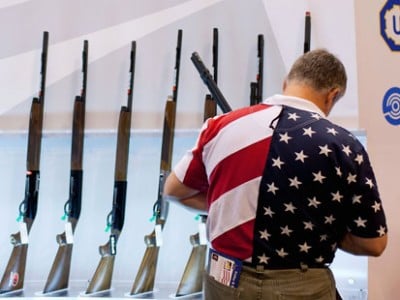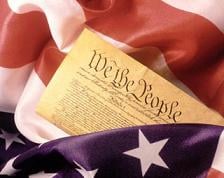U.S. Gun Control and the Second Amendment: Who Has The Right “To Keep And Bear Arms”?

The Second Amendment to the U.S. Constitution states: “A well-regulated militia being necessary to the security of a free state, the right of the people to keep and bear arms shall not be infringed.”
For someone trained to interpret the law logically and based on principles of reason, it is puzzling that the conservative majority of the Supreme Court reached the decision in 2008 that “The Second Amendment protects an individual right to possess a firearm unconnected with service in a militia,”
And we are compelled to agree with the dissenting opinion of Justice John Paul Stevens that the majority opinion constituted “a strained and unpersuasive reading” of the Second Amendment.
The two parts of the Second Amendment are not independent assertions brought together by accident in the same sentence. The prefatory part of the Second Amendment __ “A well-regulated militia being necessary to the security of a free state,__” clearly forms the context and the framework within which the second part is to be understood.
A well-regulated militia at the time of the enactment of the Second Amendment obviously meant a citizen-based defense force to protect the newly-independent United States from the threat of invasion by the British colonial forces.
In the context of nearly two-and a half centuries of change and since the United States “no longer uses horses and bayonets” to defend its national sovereignty (to borrow a famous phrase), it also does not use the “arms” kept by civilians to defend itself.
So to read the Second Amendment in its modern context, only the U.S. military and the National Guard and those whose duties expose them to danger, such as police officers and border guards, must have the right to bear arms, when on duty. Some provisions, however, can be made for bona fide farmers and ranchers enabling them to own registered, medium-caliber shotguns.
Handing in the Weapons held by US citizens
Of course with some 300 million guns purportedly in the hands of U.S. citizens, there is no suggestion here of removing these arms without fair and equitable compensation. Clearly the vast majority of citizens possessing the arms have purchased them lawfully. They could be required to hand them in to appropriate authorities within a reasonable time (for example, six to twelve months) and receive from a central assessing authority a certificate of value based on the full current market value of the arms thus handed in. In order not to create a complicated bureaucracy, these “certificates of value” can then be filed along with income tax returns, and the full value of each certificate deducted from the certificate holder’s taxes. Given the enormous cost of such compensation, these tax deductions can be spread over a three- or five-year period. For those whose low income does not require them to pay any taxes, a cheque for the full value of the arms handed in could be mailed to the owners.
The NRA’s argument that weapons in the hands of “good guys” assure security is both disingenuous and misinformed. Human personality is not carved in stone and the “good guys” do not always remain “good.” Some perfectly law-abiding citizens do break down under pressures of life and do commit desperate acts. Much of the “crimes of passion” committed during domestic disputes are usually committed by “good guys” who have faltered under stress.
Clearly it is the easy availability of guns that is the cause of the firearms-related tragedies we have been observing throughout the United States__ the horrific mass murder of a whole cohort of the very young children in Newtown, Connecticut and the latest murder of two young journalists in Virginia, though surpassing all previous tragedies, are only the continuation of the same pattern of violence.
Alan Danesh is a political scientist trained in law. He lives in Victoria, British Columbia, Canada


